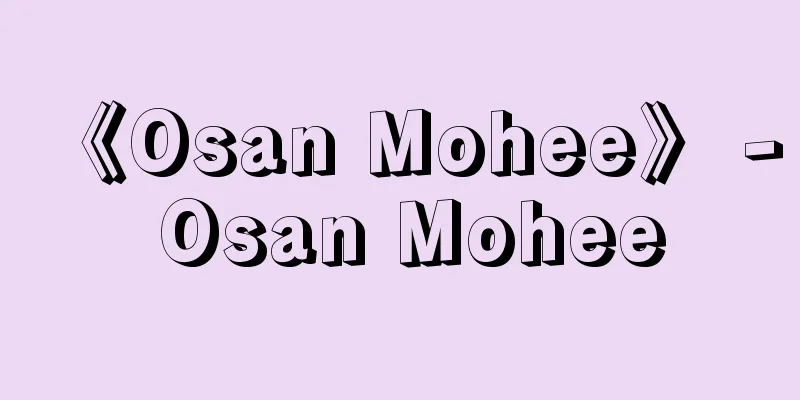Physical education

|
It can mean the organization and systematization of various sciences related to physical education, or it can mean physical education pedagogy. The Japan Society of Physical Education, a group of physical education researchers, regards the research field of physical education as a synthesis of various sciences such as physical education principles, history, psychology, society, business management, exercise physiology, kinesiology (kinetics of movement), measurement and evaluation, and physical education methodology. From a more practical standpoint, historically, physical education in Japan has generally been considered a methodological educational activity centered on physical education classes in schools. However, after World War II, instead of the previous teaching materials centered on gymnastics, sports teaching materials as a culture of movement began to be adopted, and the term sports pedagogy was born, which emphasizes bridging the gap to sports in daily life, forming awareness and attitudes, and acquiring sports skills. Recently, the terms social physical education and lifelong sports have also been born in connection with providing a place and opportunity for learning throughout a person's life, rather than simply limiting this type of educational activity to schools. In foreign countries, especially in Europe, the dominant theory of sports education is that schools are positioned as a bridge to the lifestyle and culture of society, and that physical education is also focused on the teaching process for internalizing a culture of movement as part of the lifestyle and culture of physical education. Whether physical education is viewed from the standpoint of basic science or pedagogy, the ideas and fields of physical education are changing greatly with the progress of the times in relation to people's increasing desire for sports. [Yutaka Kumeno] Source: Shogakukan Encyclopedia Nipponica About Encyclopedia Nipponica Information | Legend |
|
体育に関する諸科学を組織・体系づけたものを意味する場合と、体育教育学を意味する場合がある。体育研究者の集まりである日本体育学会では、体育学の研究分野を、体育原理、歴史、心理、社会、経営管理、運動生理学、キネシオロジー(運動力学)、測定・評価、体育方法学などの諸科学の総合したものとしてとらえている。より実践的立場からみれば、歴史的には、わが国では一般に、体育は学校における体育授業を中心とする教育活動としての方法論的立場が強かった。しかし第二次世界大戦後は、それまでの体操中心の教材にかわって、運動文化としてのスポーツ教材が取り入れられるようになり、生活におけるスポーツへの橋渡しや意識・態度の形成、スポーツ技術の習得などを重視するスポーツ教育学ということばが生まれている。最近では、この種の教育活動を単に学校に限定せず、人間の生涯にわたっての学習の場や機会の提供と関連して、社会体育または生涯スポーツということばも生まれてきている。諸外国、とくにヨーロッパでは、社会の生活文化への橋渡しとしての学校の位置づけ論から、体育も生活文化としての運動文化の内面化をめぐる指導過程に重点を置くスポーツ教育論が支配的である。体育学を基礎科学の立場からみるか、教育学的立場からみるか、いずれにしても体育学の考え方、領域が人々のスポーツ欲求の増大と関連して、時代の進展とともに大きく変わりつつある。 [粂野 豊] 出典 小学館 日本大百科全書(ニッポニカ)日本大百科全書(ニッポニカ)について 情報 | 凡例 |
<<: Gymnasium - taikukan (English spelling) gymnasium
>>: Physical education - Taiiku (English spelling) physical education
Recommend
medical social work
…It is sometimes used as a term with the same mea...
Kimdong-ri
A South Korean (Republic of Korea) writer. Born i...
Bergmann's rule
...This phenomenon is called Gloger's rule. S...
Mercury battery - mercury battery
A primary battery that uses mercury oxide (HgO) a...
Tanuma Okitsugu
A senior councilor in the mid-Edo period. Lord of...
Potebnya, AA (English spelling) PotebnyaAA
...The Croatian Vatroslav Jagić (1838-1923), who ...
Sodium Sulfate - Sodium Lactate
Na 2 SO 4 (142.04). It occurs naturally in hot sp...
Variable Wings - Variable Wings
A wing whose sweepback angle and aspect ratio can ...
Kinetography Laban
...Furthermore, instead of just dividing the body...
Osaka Sanpin Exchange
A commodity exchange located in Kitakyutaro-cho, H...
"Laid-back Nightgown" - Laid-back Nightgown
...The dark social conditions and sentiments of t...
Shrine rank - Shakaku
〘Noun〙① The status of a shrine. In ancient times, ...
Pit [small] - Pit
British politician. Second son of Pitt the Elder. ...
Kahahirako - Kahahirako
…But black butterflies (moths) are considered unl...
First-order triangulation network
...If adjacent triangulation points of all first-...









